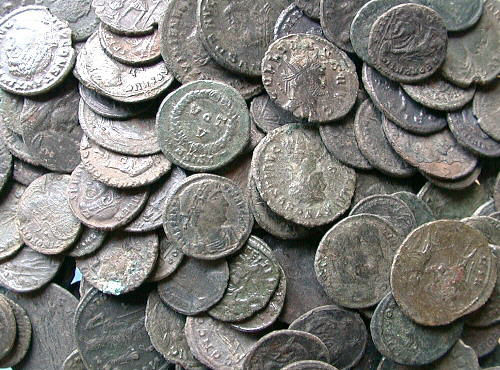No one, be that an individual or an institution, controls access to God. Jesus makes this abundantly clear.
We see this, for example, in the story of Jesus cleansing the temple by overturning the money tables. This incident is often used to justify anger and violence in God's name. Invariably, when someone affirms that God is non-violent, he or she is met with the reaction: "What about Jesus driving the money-changers out of the temple?" "What about Jesus losing his temper and displaying anger?"
Whatever the legitimacy of those questions, the story of Jesus cleansing the temple has a deeper intent. This is particularly clear in John's Gospel.
This incident is set within a context wherein Jesus is replacing a series of former religious customs with a new Christian way of doing things. For example, immediately prior to this incident of cleansing the temple, Jesus, at the Wedding Feast of Cana, replaces a former religious custom (upon entering a Jewish house you purified yourself with a number of ritual ablutions before you could sit at the table) with the new Christian way of purifying yourself for a seat at the heavenly table (for Christians, the wine of Christian community, the wine of the Eucharist, now cleanses you so that you can sit at the table).
The cleansing of the temple needs to be understood in this context: Jesus is replacing a former religious practice with the Christian way of doing things, and he is revealing something very important about God as he does this. To state it metaphorically: Jesus is replacing a former religious coinage with a new religious coinage. Here are both the metaphor and the lesson:
We're all familiar with the incident. Jesus comes into the temple area where the money-changers have set up their tables, overturns their tables, and drives out the money-changers with the words: "Take all of this out of here and stop using my Father's house as a market."
But this has to be carefully understood. On the surface, the text appears brutally clear, but beneath its surface it is subtly symbolic (even if rather brutal in its meaning). How do we begin to unpack its meaning?
It's important to recognize that those money-changers performed a needed function. People came to Jerusalem from many different countries to worship at the temple. But they carried the coins of their own countries and, upon arriving at the temple, had to exchange their own currency for Jewish currency so as to be able to buy the animals (doves, sheep, cattle) they needed to offer sacrifice. The money-changers fulfilled that function, like banking kiosks do today when you step off an airplane in a foreign country and you need to exchange some of your coinage for the coinage of that country.
Now, of course, some of these money-changers were less-than-honest, but that wasn't the real reason why Jesus reacted so strongly. Nor was he unduly scandalized because commerce was happening in a holy place. When Jesus says, “Take all of this out of here and stop using my Father's house as a market,” he is teaching something beyond the need to be honest and beyond the need to not be buying and selling on church property.
More deeply, not turning the Father's house into a market might be translated as: "You don't need to exchange your own currency for any other currency when it comes to worshipping God. You can worship God in your own currency, with your own coinage. Nobody, no individual, no temple, no church, no institution ultimately sits between you and God and can say: 'You need to go through us!'"
That's a strong teaching that doesn't sit well with many of us. It immediately suggests the question: "What about the church? Isn't it necessary for salvation?" That question is even more poignant today in an age wherein many sincere people already take for granted that they have no need of the church: "I'm spiritual, but not religious."
Granted, there's a danger in affirming and emphasizing this teaching of Jesus, but --- and this is the point --- this teaching was not directed towards those in Jesus' time who said: "I am spiritual, but not religious." Rather, it was addressed to religious individuals and at a religious institution who believed that the way to God had to go through a very particular channel (over which they had control). All religious coinage had to be transferred into their particular coinage since, in their belief, they controlled access to God. Jesus tries to cleanse us of any attitude or practice that would enshrine that belief.
This does not deny either the legitimacy or necessity of the church, nor of those who do ministry in its name. God does work through the church and its ministers. But this does deny all legitimacy to the claim that the church and those who minister in its name control access to God.
No one controls access to God. And if God ever loses his temper, it's because sometimes we believe we do control access.
Oblate of Mary Immaculate Father Ronald Rolheiser is a specialist in the field of spirituality and systematic theology. His website is www.ronrolheiser.com.

